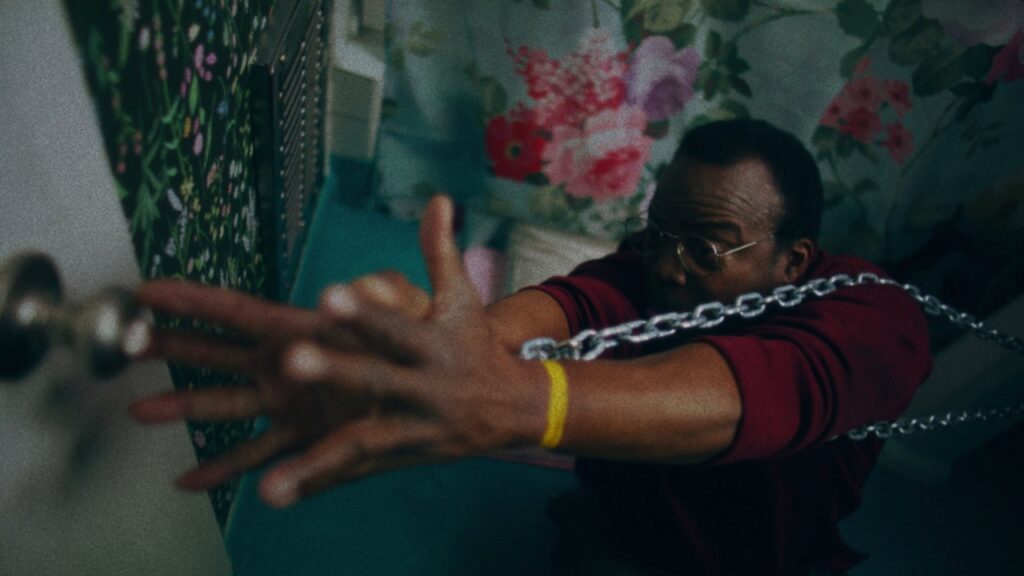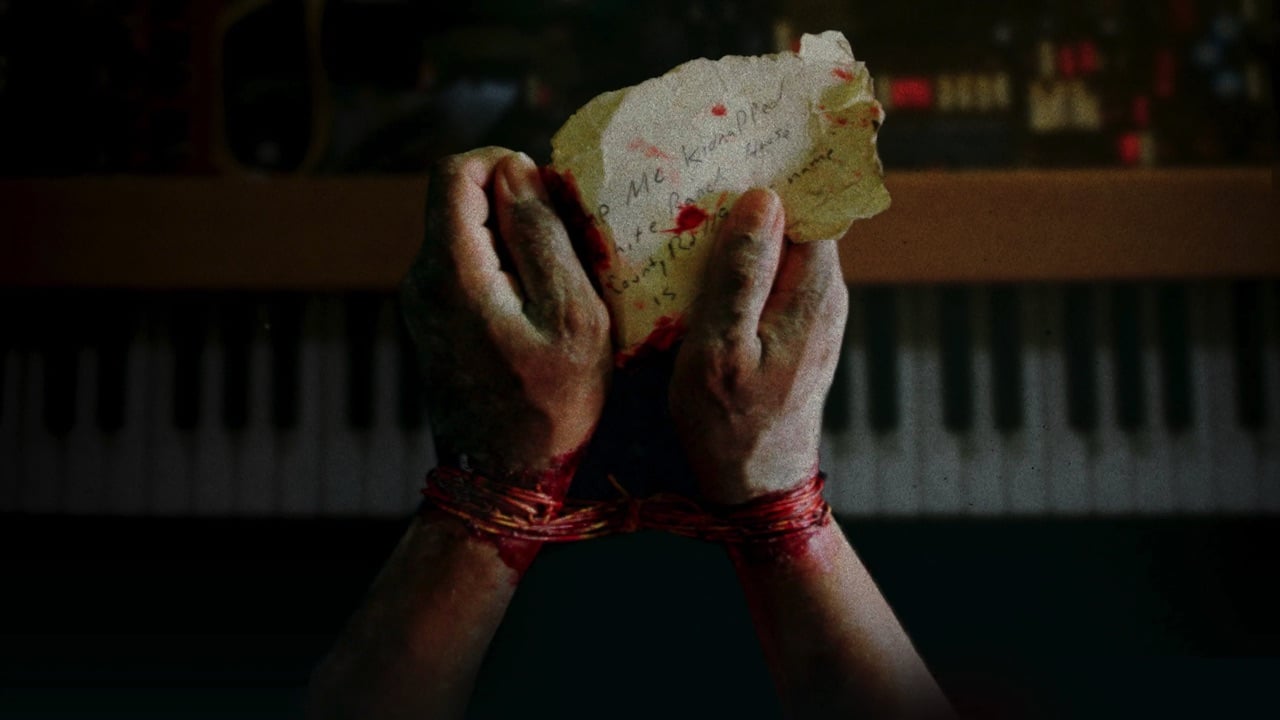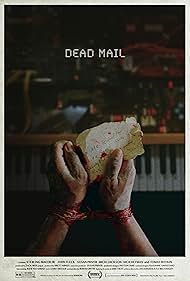Horror-flecked crime thriller Dead Mail suffers from the death early on of one of its main characters and it never really quite recovers from it. But it’s good anyway, just not as good as it might have been if xxxxxx (no spoilers) hadn’t bitten the dust.
It’s the second feature by Joe DeBoer and Kyle McConaghy and it’s all set in the 1980s, where, in a mail room in Nowheresville, USA, various members of the postal team try to reconnect lost letters with their intended recipients. The really discombobulating ones get sent up to Jasper (Tomas Boykin), a strange man who, when not at work, lives in a flophouse. A recovered down and out, maybe, Jasper is something of a genius “dead letter investigator” and uses all the 1980s tech to hand – rudimentary computers, telephones, old fashioned savvy – to put a proper address to a wayward envelope, or re-route a parcel to its planned destination.
What will Jasper do with the bloodstained scrawl on a scrap of paper that’s come his way? In a pre-credits sequence we see who sent it. Later in the film, in a looping flashback section that takes up much of the film, we see how this guy, Josh (Sterling Macer Jr), something of an electronics whizz, wound up at the home of Trent (John Fleck), a supposedly benign investor who wants to fund Josh’s attempts to build the perfect synthesiser but ends up as his jailer. That’s no spoiler – it’s pretty much the film’s opening shot.
This vibe, the loner male, the nerdy dude with a special though offbeat talent – whether it’s Jasper, or Josh or even Trent (who has his own weird aptitudes) – is the prevailing tone of the film. Dead Mail is low budget and makes a virtue of it, with its grainy looks, handheld, claustrophobically close shooting style, restless fast edits and a colour palette that’s quite warm and cosy, for something this close to being a horror movie.

The dedication to the 1980s aesthetic also stretches to the décor, whether it’s grimy but functional federal office buildings, or Trent’s home big on patterns and velour, or Jasper’s flophouse, it all looks and feels just right, and the loud (insistently loud quite often) organ/synth/synclavier soundtrack, also by DeBoer and McConaghy, tucks right in behind the visuals.
After the disappearance of the character who shall not be named (but really, for the sake of the film, should not have died) Trent takes over as the main focus. Playing him, Fleck is, I’d say, worryingly convincing as a closeted psychopath who’s convinced even himself that he’s not one.
Late in the day, Micki Jackson and Susan Priver get a chance to do their thing, as female colleagues of Jasper who turn sleuth and switch the film out of flashback and into the here and now. Suddenly the film recovers its mojo and switches out of rote kidnap horror back into something much more energetically rickety and attractive.
In short – good, then less good, then good again. But through the entire thing DeBoer and McConaghy’s’s command of film-making technique and the focus on mood and world-building remains dominant. These two guys know what they are doing and they’re still doing it as the end credits roll and up come sequence of photographs showing the real characters involved. Suggesting everything we’ve seen really happened. Followed instantly by a “This is a work of fiction” disclaimer. Funny.
Watch in a double bill with Andrew Bujalski’s Computer Chess from 2013 – which is not quite the same cup of grog but is also wonky, thoughtful and nails the period – for a delightful night of disturbing 1980s retro.
Dead Mail – Watch it/buy it at Amazon
I am an Amazon affiliate
© Steve Morrissey 2025

